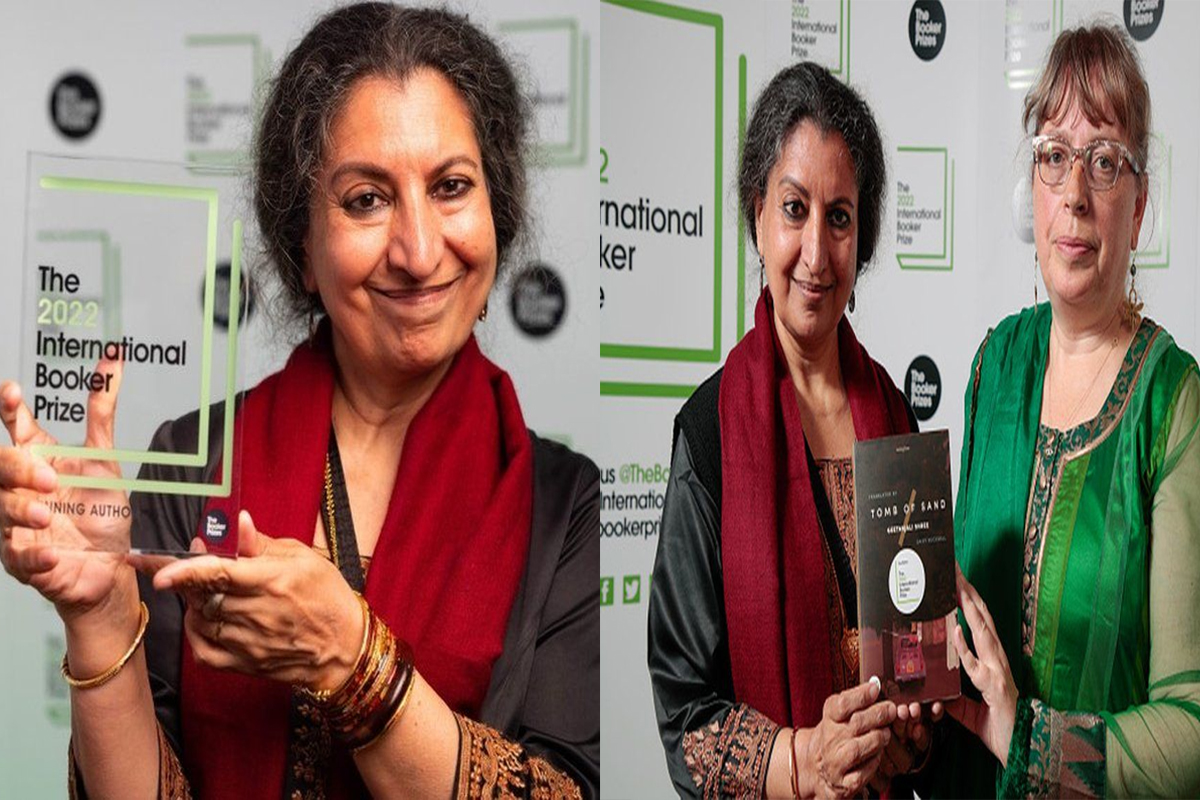For us Indians, I don’t think English can ever exude that magic of emotions which our mother tongue can – Kailash Kher
By Olayinka Oyegbile
Last week, India once again found itself in the news, at least in the literary world. The reason for this was because Geetanjali Shree, a Hindi writer, along with her translator Daisy Rockwell, won the £50,000 International Booker Prize. https://www.theguardian.com/books/2022/may/26/first-novel-translated-from-hindi-wins-international-booker-prize.
Why should her win excite anyone, when she is not the first Indian to win an international literary laurel? This is true. Indians are widely known to be good writers who have won laurels for their efforts. In fact, before Shree, there have been others who have won the Booker Prize. These are VS Naipaul (Free State, 1971), Salman Rushdie (Midnight Children, 1981) Arundhati Roy (God of Small Things, 1997), Kiran Desai (Inheritance of Loss, 2006), and Aravind Adiga (The White Tiger, 2008).
What however makes Shree’s 2022 win of the International Booker Prize for me is that it is a translation from Hindi, one of India’s many languages. It is a triumph for mother tongue if you ask me. It has thus become the first winner of the prize from India. Shree’s book, Tomb of Sand, has been described as “extremely exuberant and incredibly playful.” It is the first time a book originally written in any Indian language is winning the award. According to critics “The book is about an 80-year-old woman, who slips into a deep depression when her husband dies, then resurfaces to gain a new lease on life. The woman travels to Pakistan to confront the unresolved trauma of her teenage experiences of Partition and re-evaluates what it means to be a mother, a daughter, a woman and a feminist.”

Frank Wynne, chair of judges for the award, who is also the first translator to chair the judging panel, said the book is “extraordinarily funny and fun. It is enormously engaging and charming and funny and light, despite the various subjects it’s dealing with … a perfectly decent beach read for absolutely everyone.”
Shree’s Tomb of Sand came first out of 135 books submitted for consideration. It beats others on the shortlist such as The Books of Jacob by Olga Tokarczuk, translated from Polish by Jennifer Croft.
Shree’s win for me is a call to look inwards and for us as Nigerians and Africans to reconsider the way we treat our languages. We have derided our languages so much that many of us don’t speak any of them at home again and do not even make any attempt to teach our children our languages. Even the barely lettered ones today speak bad English (pidgin) to their siblings at home!
I remember the arguments I used to have with many of my colleagues as a student at the University. I schooled in the North and many of my colleagues then used to turn up their noses when you meet any student studying Hausa. I often asked why? The answer I usually get was always in form of a derisive question, “Is it not Hausa he/she is reading?” And I often shoot back, “And so what?” Without being told you could feel the contempt in the voice and gestures of such students. But introduce a student of English or French and they adore those. Why? I often ask, is any language superior to the other? But I never got any satisfactory answer.
The narration above is not restricted to the North. The same applies across the country. In the Southwest, I know students of Yoruba are given the same kind of look their Hausa counterparts get in the north and the same, I guess, applies to those of Igbo in the East. Why? The issue of writing in one’s indigenous language has been on the front burner for years and would never go away. Many students of literature would remember that it was the writing and performance of Ngugi Wa Thiongo’s first play in Gikuyu (I Will Marry When I Want) that opened his eyes to the power writing in the language of the people. Prior to that play, he had been writing in English and was never touched by the powers that be in his country. However, the decision to write in his own mother tongue was viewed as treason. Perhaps because the leaders knew he would use that to get to more people.
I have always argued that Russian authors such as Leo Tolstoy, Aleksander Solzhenitsyn, and others wrote their great works in their home language, so why can’t we leave the rest to translators to work on?
But we probably can’t do that because we don’t teach our languages and cannot, therefore, leave our stories untold. The Shree win of the Booker Prize, therefore, set me thinking that we need to perhaps go back to the drawing board and re-order our lives to get greater results. Since don’t teach our languages or speak them at the elementary level how are we going to sustain them beyond where they are now?
Although I have not been able to confirm this: I heard that the University of Lagos has shut down or is about to shut down its degree programme in Igbo language, which used to be the best in the country, due to lack of students. However, Universities abroad, especially in the United States are running (sub) departments in our own languages! Are we in future going to begin to send our wards abroad to study our languages?


